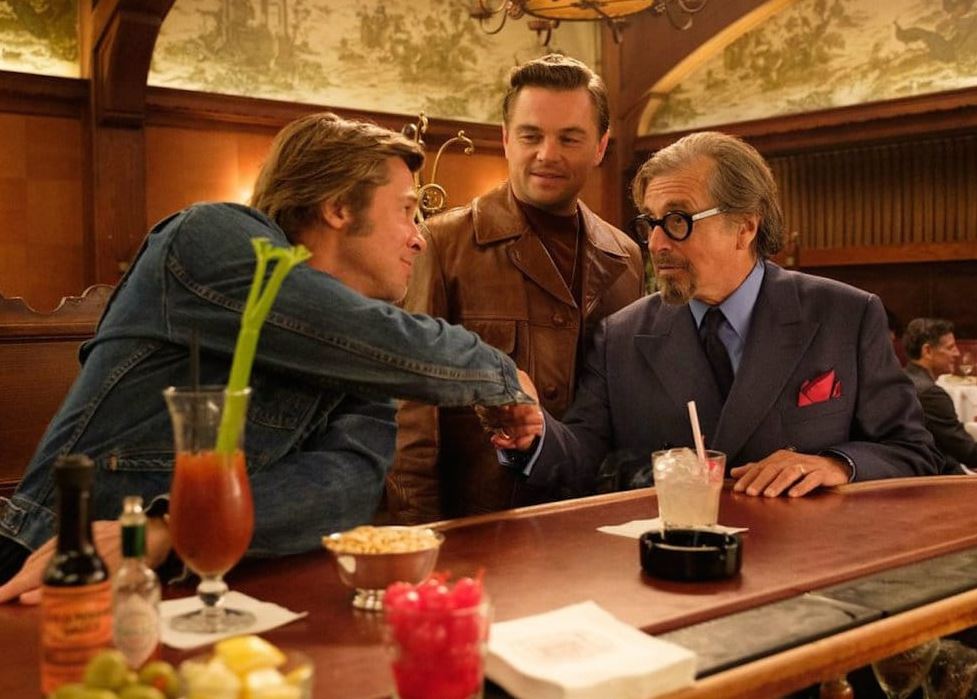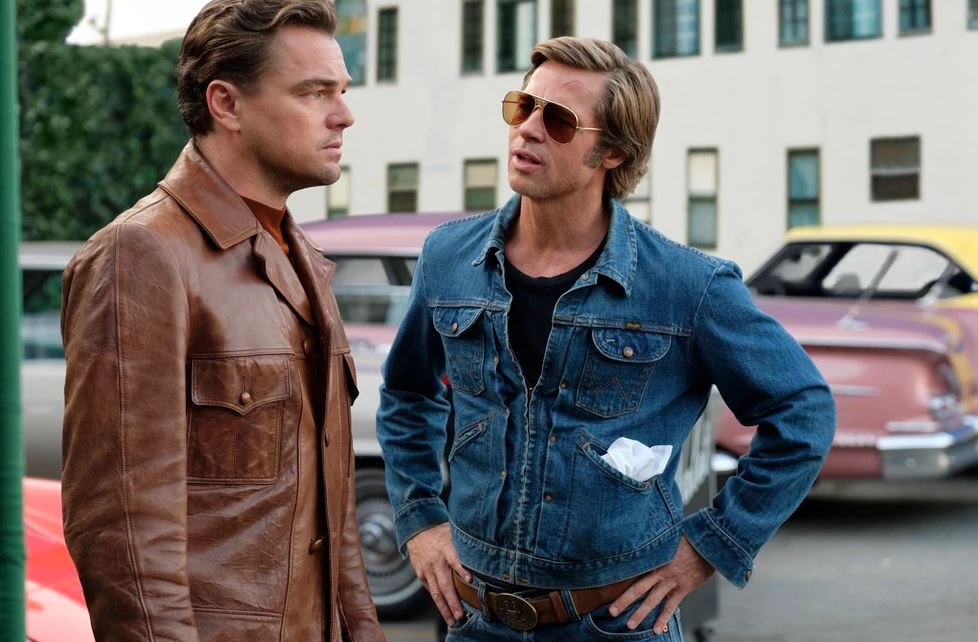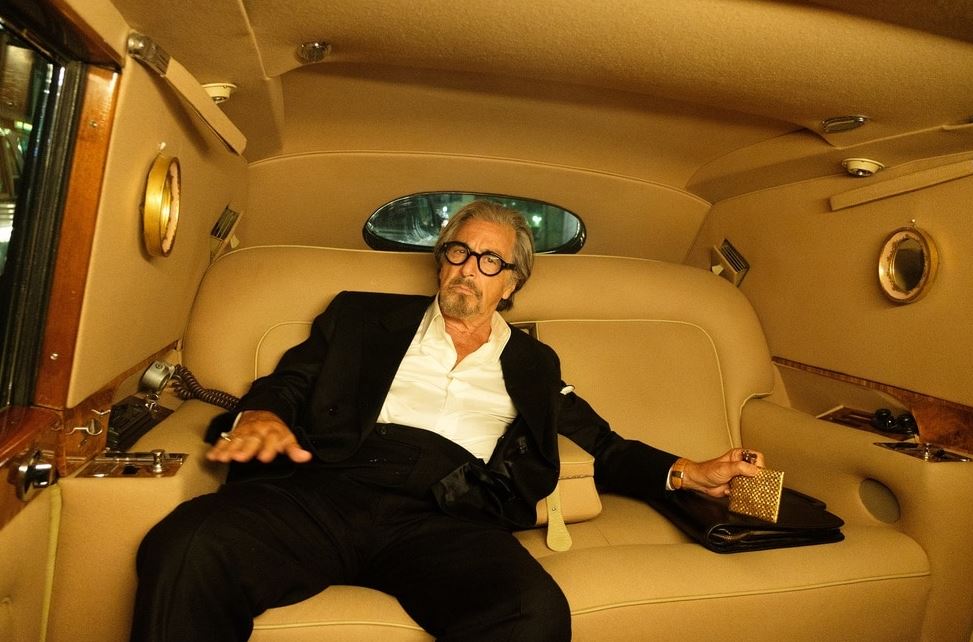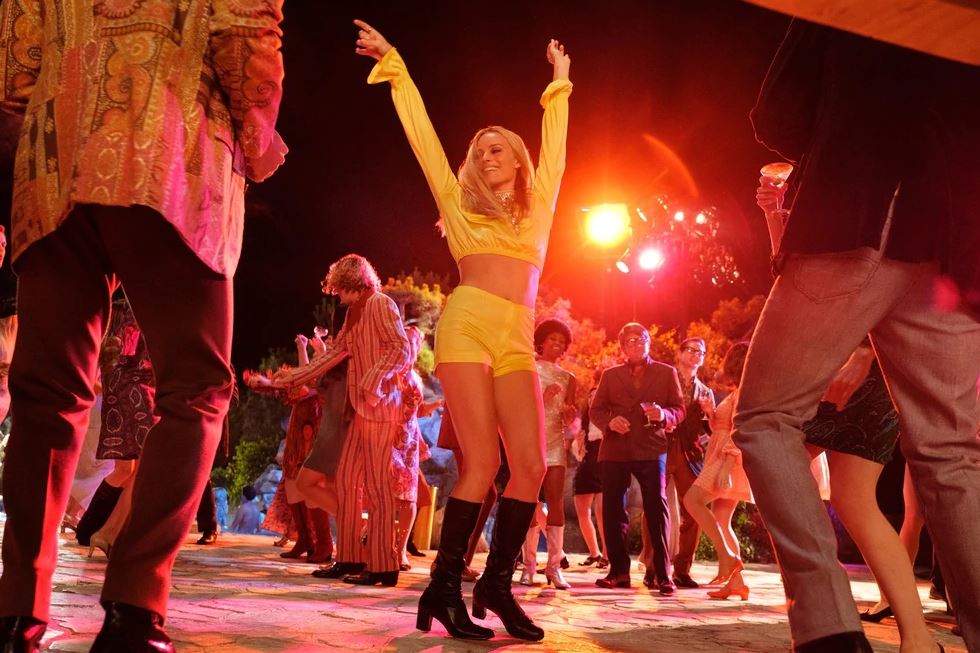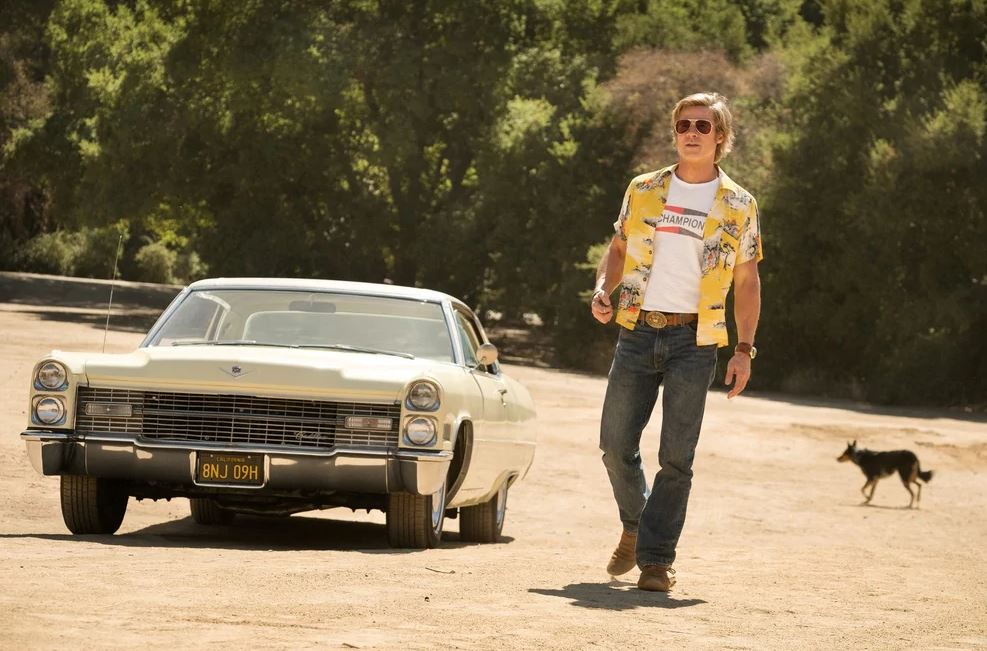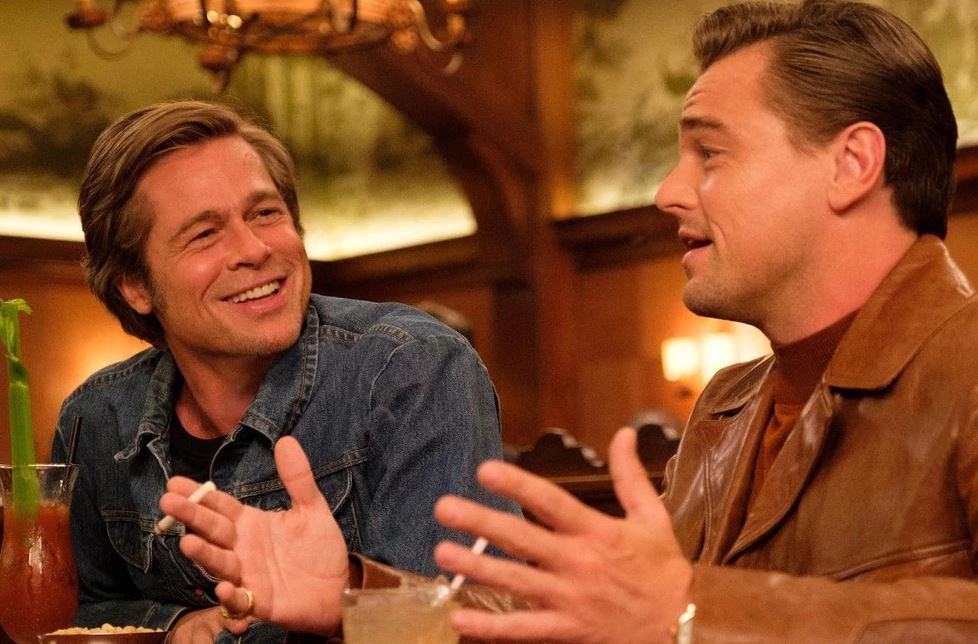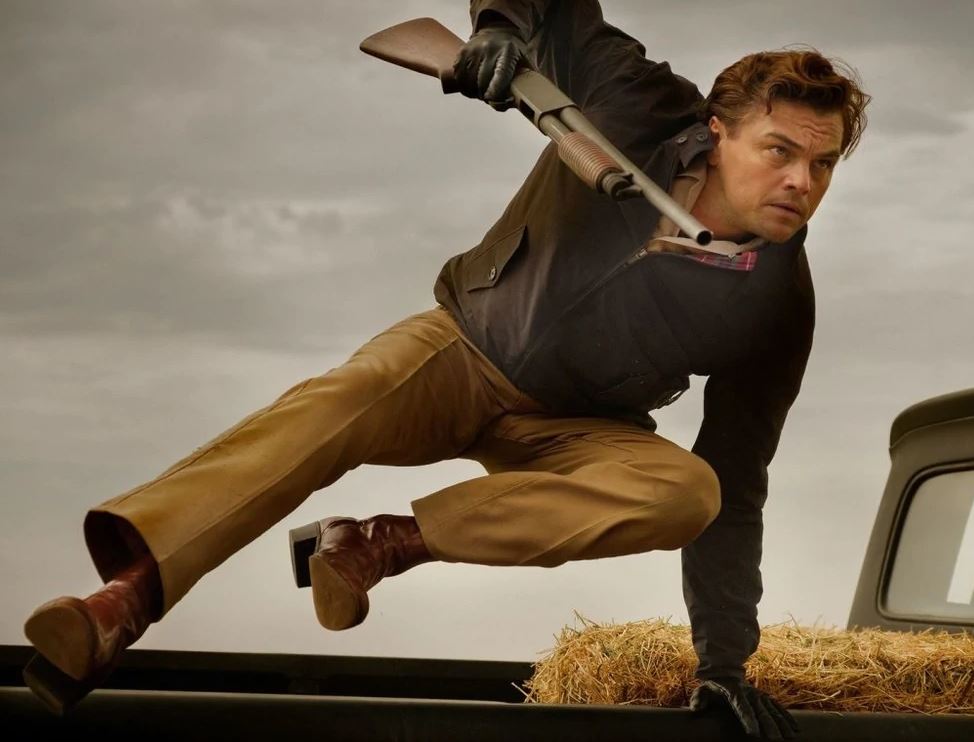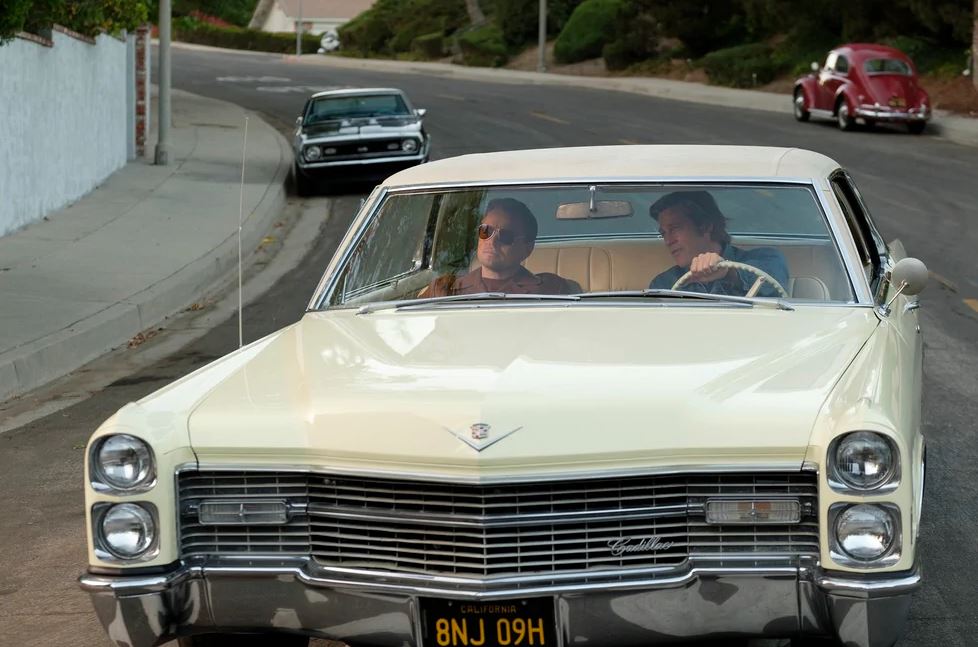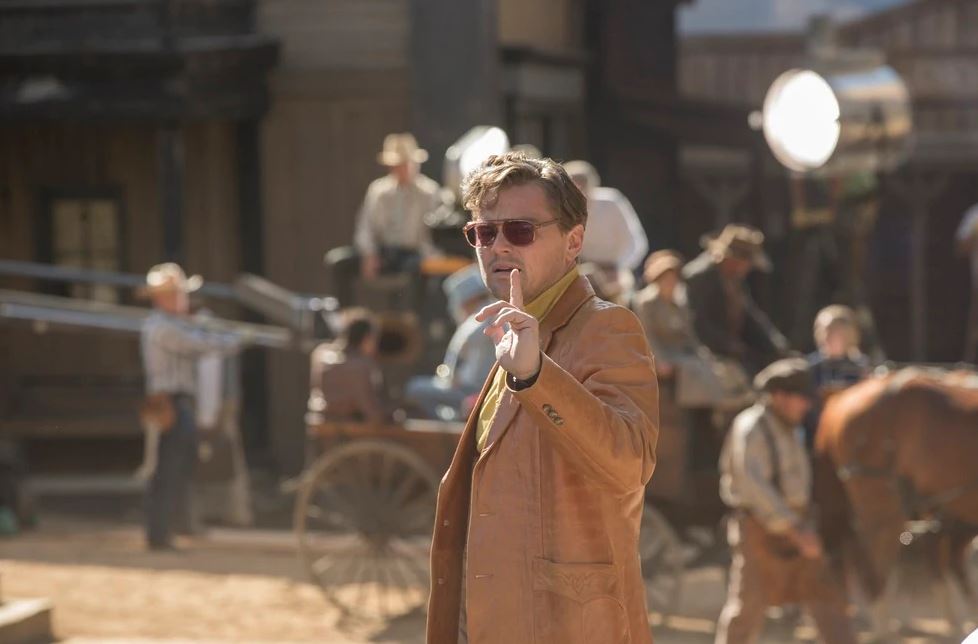Oh, and the … in the title!
I don’t know where to start. My personal story definitely started to focus on the movies when I attended film courses in Cambridge, Mass. in the autumn of 1994, under the guidance of the Yugoslavian Black Wave director, Dušan Makavejev. I decided to watch Pulp Fiction with a few of my funny acquaintances on its opening weekend at the Loew Cinema at Harvard Square. Well, until then, only Jancsó and Godard had had similar effect on me. When I’d seen Reservoir Dogs a few years prior at Budapest, on VHS, I thought that Tarantino was just another Italian American director and it had been yet to decide whether he was the crème de la crème like Scorsese, Coppola or De Palma; or he was a craftsman of great importance like Abel Ferrara or Joe Dante. Pulp Fiction gave me the answer: the former was the truth.
Ten years later I was asked to write a short book on Tarantino that I accomplished in only six weeks. I chose his most recent masterpiece, Kill Bill as the centre of the book, and I found that the movie is not just a female revenge story (cf. François Truffaut’s The Bride Wore Black or Toshiya Fujita’s Lady Snowblood), but an all-encompassing encyclopaedia on Asian pop culture – following a book on J-pop and a feature documentary on stunt doubles in Hong Kong in the late 90s, I felt I was allowed to make such statements. When I first read about the subject matter of Once Upon a Time… in Hollywood, I was overwhelmed with joy:
I hoped for an encyclopedic movie that covers both the Manson-story and the pop culture of the era. I was disappointed. Thoroughly disappointed. In both the music and the atmosphere.
Things have happened since Pulp Fiction. There was a car stunt movie (Death Proof), followed by liberating alternative history movies about World War II (Inglourious Basterds), slavery (Django Unchained) and the American Civil War (The Hateful Eight); also everybody got older and melancholic; add to the mixture the #metoo scandal, with Henry Weinstein as its main antagonist, and thus Tarantino also had a supporting role in the commotion. Harvey Weinstein was, on the one hand, an exceptional producer, like David O. Selznik or Darryl Zanuck, but, on the other hand, a sexual predator of the boarish type, someone who never shied away of abusing his power, an actual criminal. Was Quentin an accomplice? Yes. He was the boyfriend of Mira Sorvino when Weinstein made a move on her, and it was not only a case of the-girl-of-buddy-is-a-no-go-zone, but the resuscitation of the myth of the casting couch. Because Harvey made a move on practically everyone he met. Even on Uma Thurman – and there already had been bad blood between her and Tarantino, and with reason, because, as I discussed it previously, QT carelessly put Uma Thurman in danger during the filming of Kill Bill when she – in idealised lighting and environment – crashed with a metal blue Karmann Ghia, suffering permanent injuries. At the beginning of Once Upon a Time… in Hollywood, Cliff, played by Brad Pitt, gets out of his boss’s white Cadillac and sits in his own, a metal blue Volkswagen Karmann Ghia, to drive home to his stinky trailer park (similar to Budd’s motorhome where he gets bitten by a black mamba) where only Brady, his pitbull and a few can of beer waits for him. I was pretty happy to see the car. I thought that some things will be settled. How wrong I was.
*
Everything under the California Sun. California über Alles. This is the first movie made without Harvey Weinstein. It is in fashion nowadays to highlight the dark side of the counterculture of the 1960s. It feels like we are licking clean the arse of Trump’s AmeriKKKa, and I wish I was wrong – though I’m sure that actually I am not –, because it is so disappointing. On 9 August 1969, in a mansion on Cielo Drive, Benedict Canyon, rented from the music producer, Terry Melcher – which served as Roman Polanski’s residence though he was filming in London at the time –, the enraged members of Charles Manson’s cult (Melcher hadn’t published Manson’s music) massacred the pregnant actress, Sharon Tate and her guests (Abigail Folger, Wojtek Frykowski, Jay Sebring). According to many, including Joan Didion, this is the end of the era of the Flower Children, no more Love & Peace etc. There’s a well-to-do neighbour, an old-fashioned western actor, Rick Dalton (Leonardo DiCaprio) and his former stunt double, now driver/best friend/companion, Cliff Booth (Brad Pitt), a World War II veteran, who, rumour has it, had killed his wife, and we eventually see a short flashback of them where the wife does not look like Angelina Jolie at all – American press suggest that the scene references the death of Nathalie Wood. Here, however, nothing happens, a woman is quarrelling with her husband. Rick and Cliff’s bromance is blooming, Rick suffers from a creative crisis, Cliff is satisfied with playing the servant. Rick wishes to film with Polanski after his Polish neighbour having conquered the world with Rosemary’s Baby, he has become the most wanted director. Margot Robbie plays Sharon Tate as if she were a high tier extra. Nice smile, black sweater, white miniskirt and boots. She goes to the movies alone, kicks of her boots and rests her bare feet on the row before her (cue the infamous foot fetish) and watches a real Sharon Tate-film. She buys Thomas Hardy’s Tess d’Urbervilles for Roman, and Polanski would indeed adapt the novel ten years later, with Nastassja Kinski in the main role. Polanski, wearing jabot and a velvet blazer, drives her to the Playboy Mansion, where she claps, dances, enjoys herself. Later she walks along the street and drives a car. She is not a female protagonist, just a biodécor, a decorative design that reflects light. Al Pacino has a cameo as a producer, but it will not be considered among his best 150 movie roles.
Cliff has some feud with Bruce Lee (Mike Moh) during the filming of Green Hornet. Bruce brags that he could knock out Muhammad Ali, Cliff has doubts, they fight the fight, Cliff beats the cheeky Chinese actor within an inch of his life. Cliff drives around in LA (the radio is on, newsflashes from Vietnam and second-rate music, at least compared to other Tarantino movies), then he picks up a trashy hippie girl, takes her to the Spahn Movie Ranch where the Manson family hid in real life. I can no longer hide my irritation. The Manson family was a killer sect, like the cults in Jonestown or Waco, and identifying the hippie and countercultural US that rebelled against the mainstream, Neal Cassady, Merry Prankster, Ken Kesey and his Acid Tests, Ginsberg and Hunter Thompson with the Manson family has, up to this point, been only typical of the dumbest of Americans. Like Trump.
The ending follows a new direction in the factual labyrinth of history. The philosopher David Bentley Hart wrote an article in the New York Times stating that he had never been a Tarantino fan before but he found the ending’s “genuine moral pathos” very touching, he had been waiting for this ending for fifty years, that there is a better, dreamlike world, where monsters enter the wrong door so that they meet their fate, and Satan’s ontological status is a possibility but not a necessity of reality. Well, of all ages, he arrived at this conclusion now, in the era of Trump, Xi Jinping and Putin?
The movie is divisive. If I only look at the Hungarian reception, it covers a wide range of opinions, from wide-eyed adoration through responsible seriousness to downright rejection. The scenes where Rick Dalton (Leo) films a western reminds me of Dennis Hopper about whom Rick talks about with great disdain. Hopper directed Easy Rider in 1969 and it was such a success that he was granted funds for his next project, The Last Movie. It was filmed in Peru, and, according to the word-of-mouth, the plane ride from Los Angeles to Lima was already hindered because the staff was so under the influence of drugs. And then they arrived at the land of cocaine and ayahuasca and they immediately incurred the hatred of some local entity: the junta governing the state, the Catholic church, the cocaine cartel, and the Maoist Shining Path guerrilla army. It was a surefire idea and the wet dream of any life insurance company. Hopper’s movie is regarded as one of the worst and most screwed up movies of all time – despite the cinematography of László Kovács and the acting skills of Kris Kristofferson, Toni Basil and the wonderful Peruvian bar singer, Poupée Bocar –, but most of its runtime they actually film a western, a sort of a movie-within-a-movie, and the director is played by one of my favourite directors, Samuel Fuller. The set shows a Western town, there are people falling from roofs, the small director wears white jeans and a Union hat, curious Indian children watch the events. The scene between DiCaprio and the know-it-all girl in the western set hints at that movie, but it’s fake, as if they were trying to disarm the feminist critics, even those who would like to spend some time on the more or less closed conflict between Tarantino and Thurman, like myself. I don’t know whether it’s enough that Maya Hawke (born 1998), Ethan Hawke and Uma Thurman’s daughter plays one of the Manson girls – Maya’s grandmother was Timothy Leary’s wife for a short time. The movie’s message, however, is that the old-fashioned Hollywood is cool, while hippies are not that much. Well…
“It’s a love letter to Hollywood!”, an ode to genre films, an elegy – say the enrapt critics. Oh, and the … in the title! Is it vague? Indistinctive? Is it Leone or not? Or is it rather another Sergio, the other spaghetti western director, Sergio Corbucci? Hell no, Quentin, there is no fooling around in the title! This is not cool. The title of the Jarmusch movie, The Dead Don’t Die, look at that, that’s cool!
*
When I was writing this review, the news of Peter Fonda’s death at the age of 79 broke. Among his many roles, the one in Easy Rider is definitely the most important. I have shared this anecdote several times, but it fits here so seamlessly: some two decades ago, I managed to have a word with him at a seminar for producers organised by Sundance in Tokyo. I told him I was from Budapest, I had been 12 when I had seen Easy Rider, and it had changed my life. He was talking to a big Japanese producer when I approached him with a glass of champagne in my hand. “What did you say, young man? Budapest? Then you surely know that not only Lazlo Kovacs but the whole camera team in the crew was Hungarian. Those people left the country in 1956, and their yearning after freedom is just as tangible in the movie just like Dennis’s, Jack’s or mine.” It was a perfect sentence with a perfect delivery, and it was hard to follow it up with questions like whether Dennis really made Fonda took acid for the graveyard scene in New Orleans. Because in the movies, just like in real life, longing for freedom is imperative.
Tarantino, however, seems to have forgotten about the liberating force of the film,
he lost his way in Plato’s cave, and he carelessly projected diaporamas on the wall of the cave already packed with chaotic, flashing shadows, the shadow of his is Trump, others have other shadows, but Tarantino’s slide show just upped the ante. In case this movie is his The Turin Horse (Béla Tarr’s last film), then I might have to rewrite my book. But I hope, he will keep his promise, and eventually films his tenth film.
PS: It might be interesting for the readers of dunszt.sk that Tarantino’s Italian-American heritage has a slight Czechoslovak input: after she divorced from Tony Tarantino, his mother, Connie (cf. The Bonnie Situation) married Curtis Zastoupil. The small Quentin – named after Burt Reynolds’s character, Quint in the western series, Gunsmoke –was raised as a Zastoupil, and he only appropriated his biological father’s Italian name in his young adult years because in America, at least marketwise, it is more important to have some connection to the tycoons of Hollywood than the Czechoslovak New Wave so adored in Central Europe.
Translated by Zsolt Cz. Beke
Photo: Sony Pictures
Ha tetszik, amit csinálunk, kérünk, szállj be a finanszírozásunkba, akár csak havi pár euróval!

